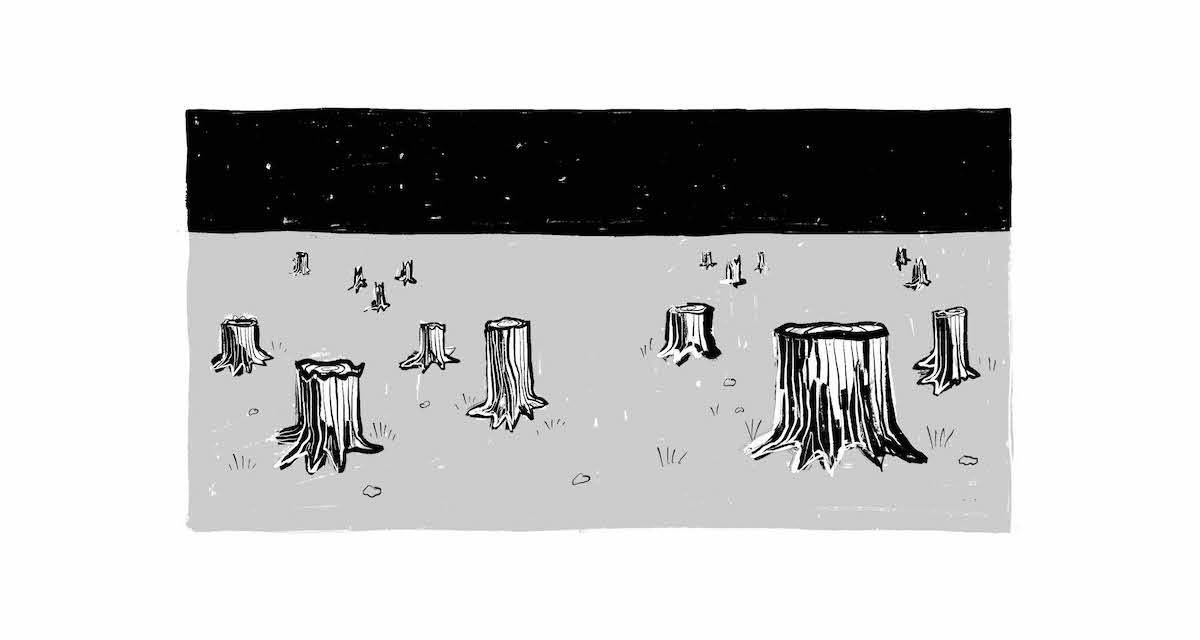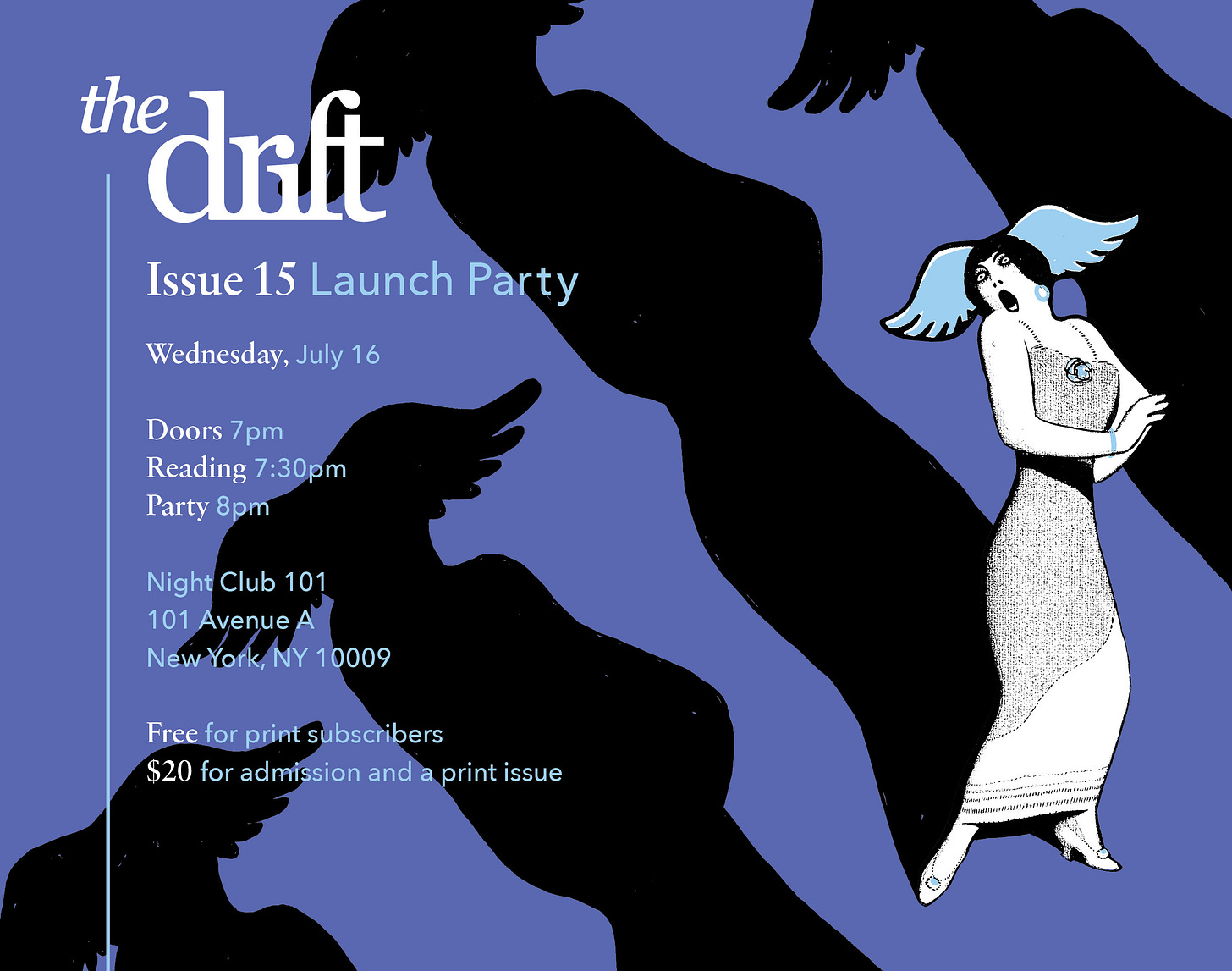Collapsing the urban-rural divide
Nick Bowlin on the geography of economic exploitation; a new batch of Mentions
Devastating cuts to Medicaid, totaling more than $1 trillion over the next decade and jeopardizing health care access for tens of millions of people, headlined Trump’s recently enacted big, aesthetically dubious policy bill. Experts expect these cuts to afflict rural Americans disproportionately. “Many rural hospitals will have to reduce their services or possibly close their doors altogether,” two researchers predict, with catastrophic consequences for both the physical health and the economic vitality of surrounding communities.
This disturbing prospect corroborates Nick Bowlin’s claim, in his contribution to our new issue, that the circumstances of rural communities serve as “a useful portent of the future that Trump is creating.” They give us a glimpse of where the country as a whole is headed. For this reason, Bowlin argues, it is both possible and essential to form political alliances that cut across the much-lamented “rural-urban divide.” Our ruling class’s practice of plunder, after all, does not respect such divisions.
Read the full Dispatch online today.
Easy to Exploit | Collapsing the Urban-Rural Divide
NICK BOWLIN
The mistake — and it’s a common one — is to take electoral results as definitive, to regard rural people as possessing fixed, unchanging political attitudes. Their attitudes, like political attitudes everywhere, are products of history, shaped by the distinctive structural forces of the places where they live.
Trump’s bill is also a helpful reminder that bigger is not always better. Read on for five extremely abbreviated, beautiful reviews.
Capital & Ideology: A Graphic Novel Adaptation
COMIC
Spoiler alert: dense, data-packed tomes on global inequality are not especially funny. But journalist Claire Alet and illustrator Benjamin Adam try valiantly to make Thomas Piketty’s 2020 follow-up to the door-stopping Capital digestible and entertaining. Through a family saga spanning eight generations and a coda that takes the form of six proposals for modern-day participatory socialism, the book brings us on a journey from feudal lords to modern tax loopholes, replete with historical line charts lovingly rendered in panel form and factoids about quantitative easing delivered via speech bubble. The illustrations are striking, and Alet does a noble job of condensing Piketty’s academic Everest into something more like a hill. But there are only so many laughs to be had while a cartoon aristocrat in a top hat tells you that you’re poor.
Vivek N.D.
The Gulf of America’s Google Profile
GEOGRAPHY
The 7,066 reviews of this contentious body of muddy water once offered a glimpse into the minds of visitors unconcerned with its name. The “most relevant” posts were filled with childhood snorkeling memories and vaguely spiritual musings; one satisfied customer wrote, “the Gulf has made us a part of her, and she is a part of us.” By contrast, a single-star review called the Gulf “a constant disappointment… a thirty-year-old son who won’t leave home.” Earlier this spring, Google archived all but one of these comments, leaving the note: “Posting is currently turned off for this type of place.”
Polly Adams
Trash Humpers
FILM
Harmony Korine’s 2009 black comedy about constipated Nashville dumpster divers, now on the Criterion Channel, follows a group of social outcasts wearing rubber old-people masks, literally humping trash — and any other object, inanimate or otherwise, they can find. Repulsive, crude, unapologetically aimless, and literally unforgettable, it exemplifies the once-revelatory aesthetic of the leading cinematic anthropologist of American muck. Sadly, in recent years, Korine has been producing a different kind of trash: something he calls “blinx,” a kind of techno-futurist post-cinema involving edgy infrared photography, giant baby faces superimposed on home invaders, and Travis Scott.
Tyler Thier
Ai, Rebel
VISUAL ART
The largest-ever U.S. exhibition of work by Ai Weiwei quotes the artist’s famous line — “Everything is art. Everything is politics.” — but stops short of making a clear statement on protest or freedom of expression. The most instructive moment, at least during my visit, was supplied instead by one of the “touch stations” devised by the Seattle Art Museum, where grabby visitors can interact with samples of Ai’s materials. I watched as a young girl ran her hands over a slab of marble, then turned to do the same to the real artwork beside it. Her mother intervened and tried to explain the difference between the two, with little success.
Erin Langner
Uniqlo Coffee
BEVERAGES
The global clothing behemoth Uniqlo recently opened the first North American location of its eponymous coffee shop, housed on the second floor of the company’s flagship Midtown store. The minimal seating and airport-like ambience may disappoint Manhattanites looking for a welcoming “third space”; this site was once a Starbucks, and little seems to have changed. But the coffee was fantastic, despite the barista’s reaction to my Americano order. (“That’s the one that’s espresso, right?”)





